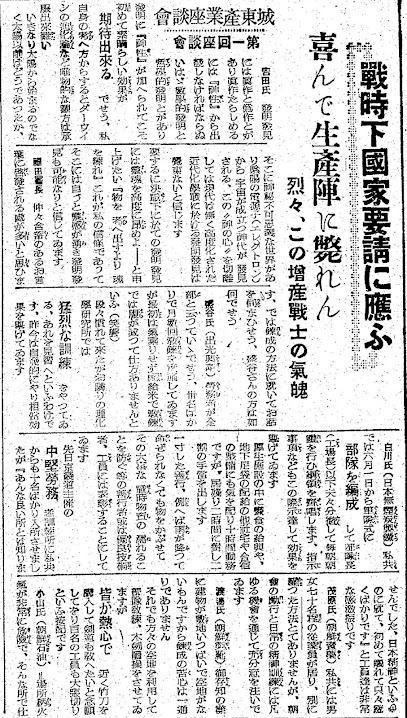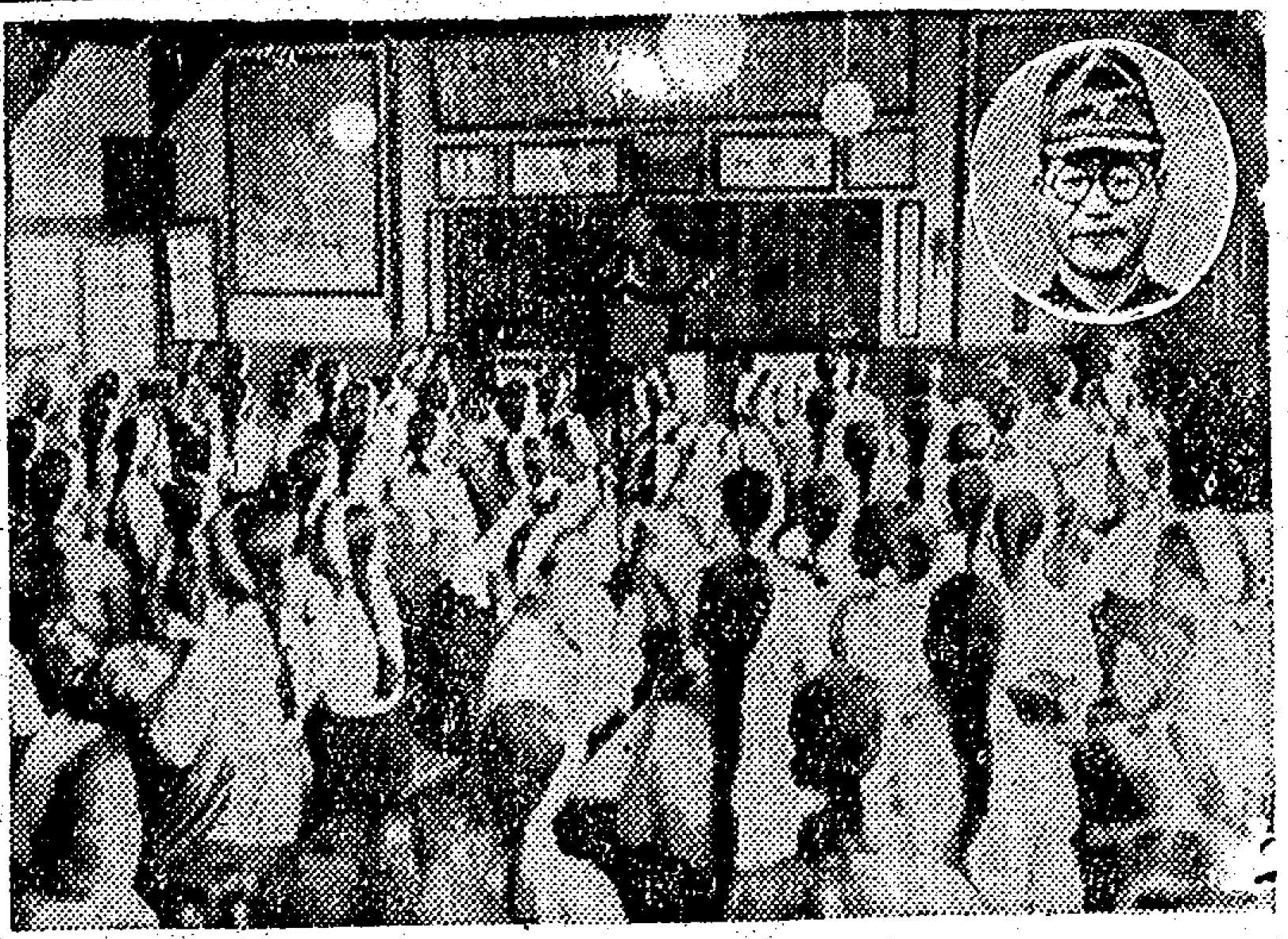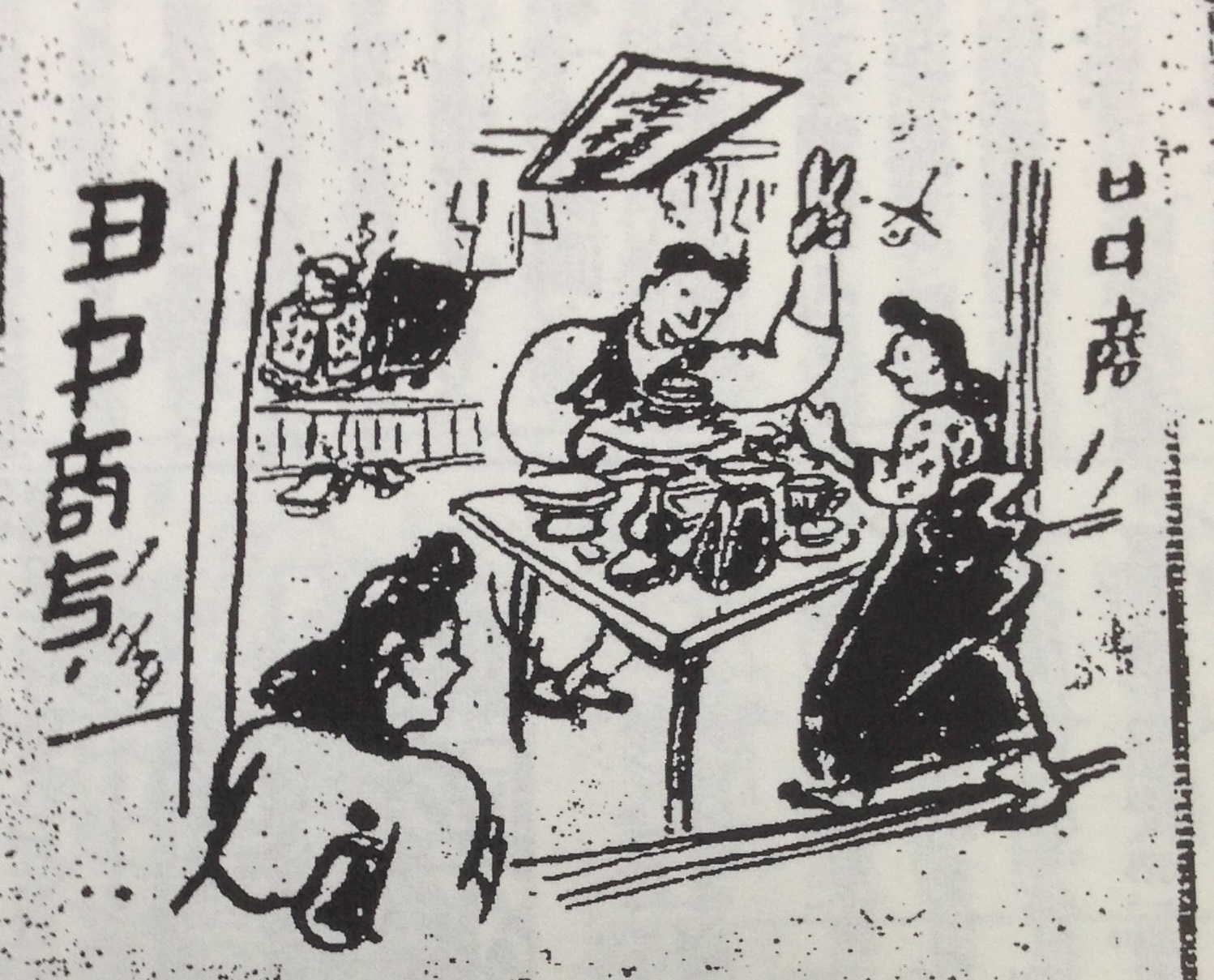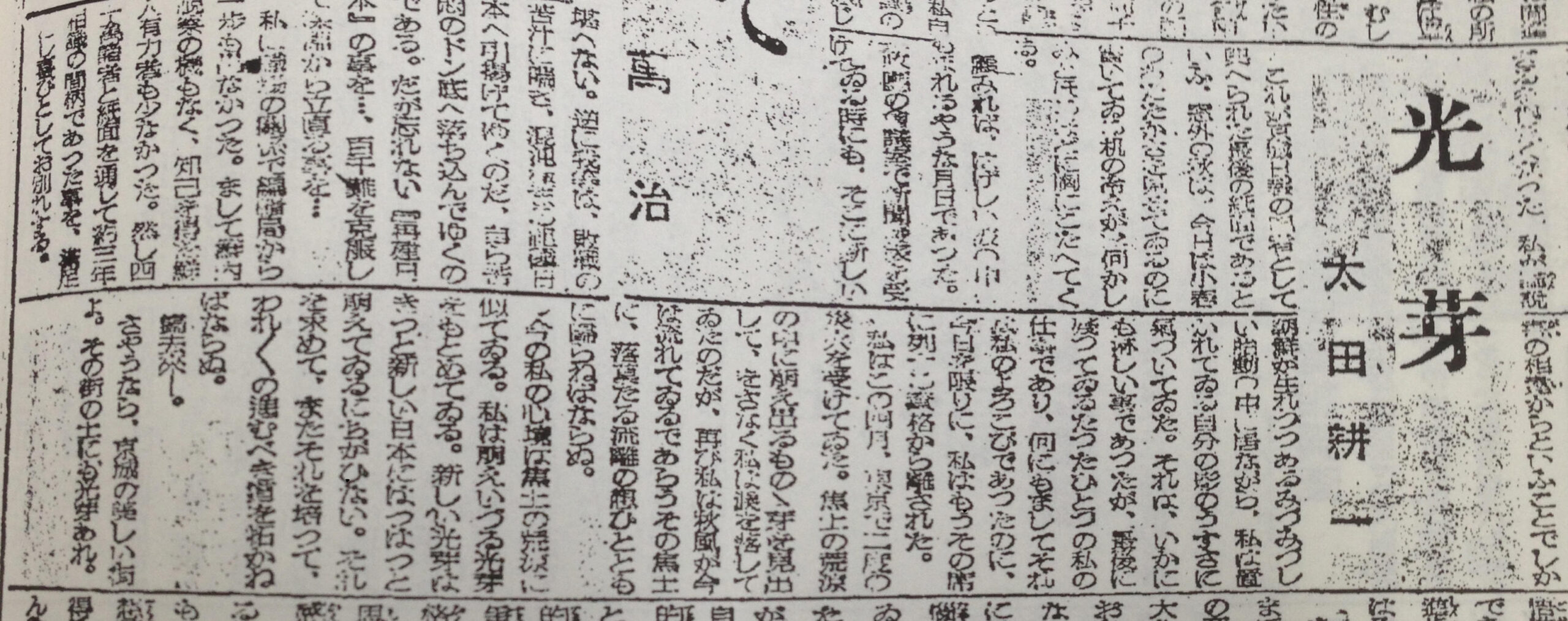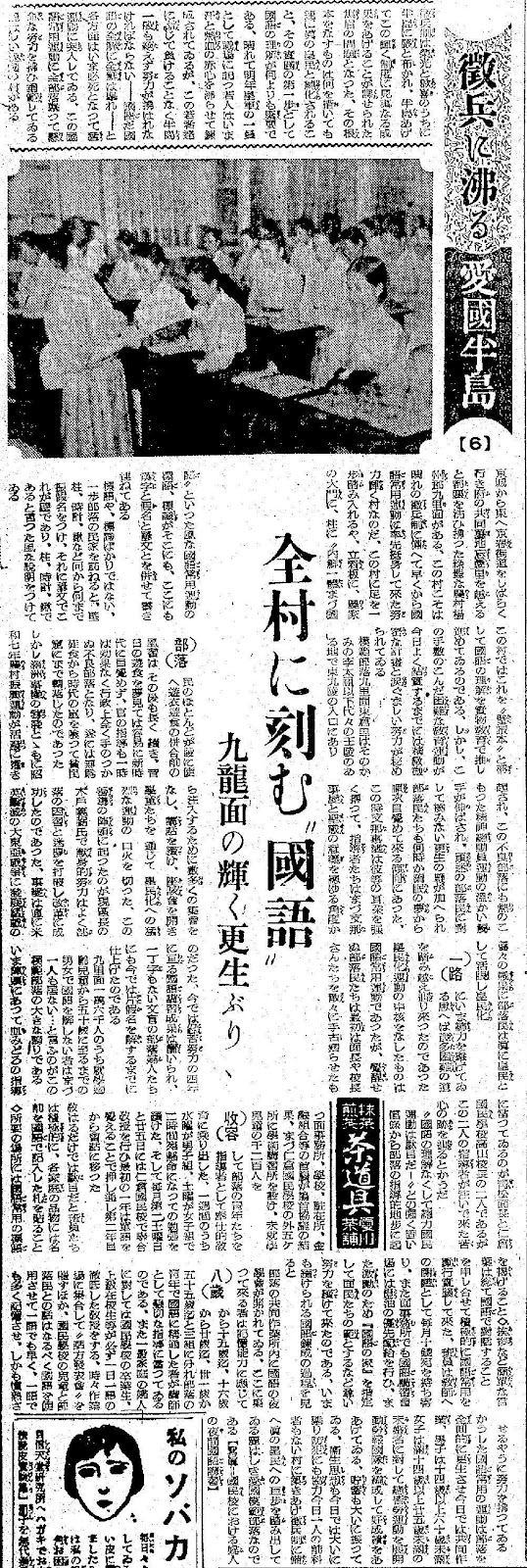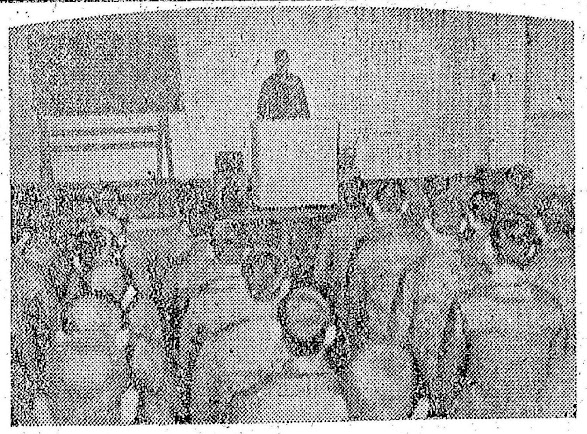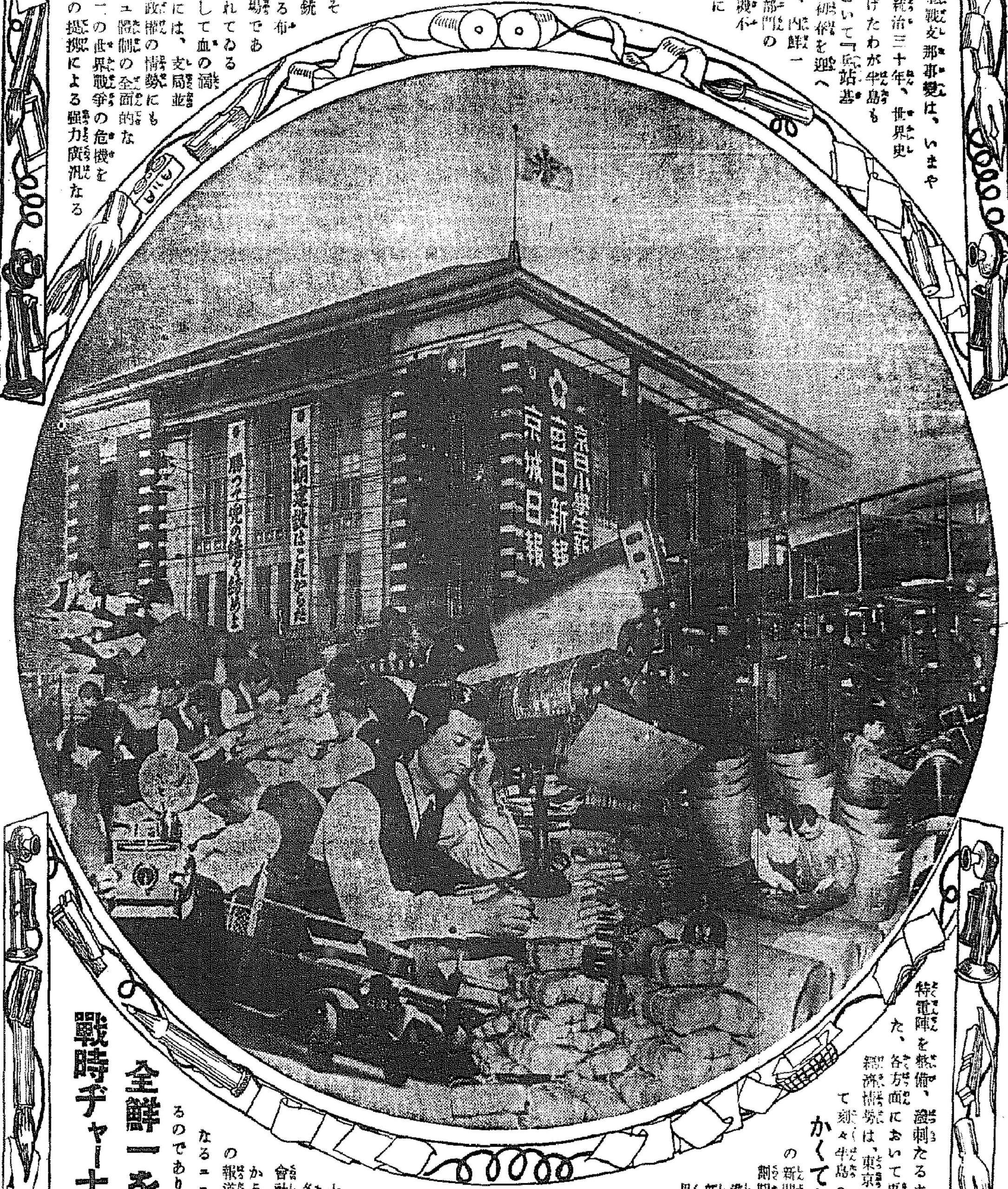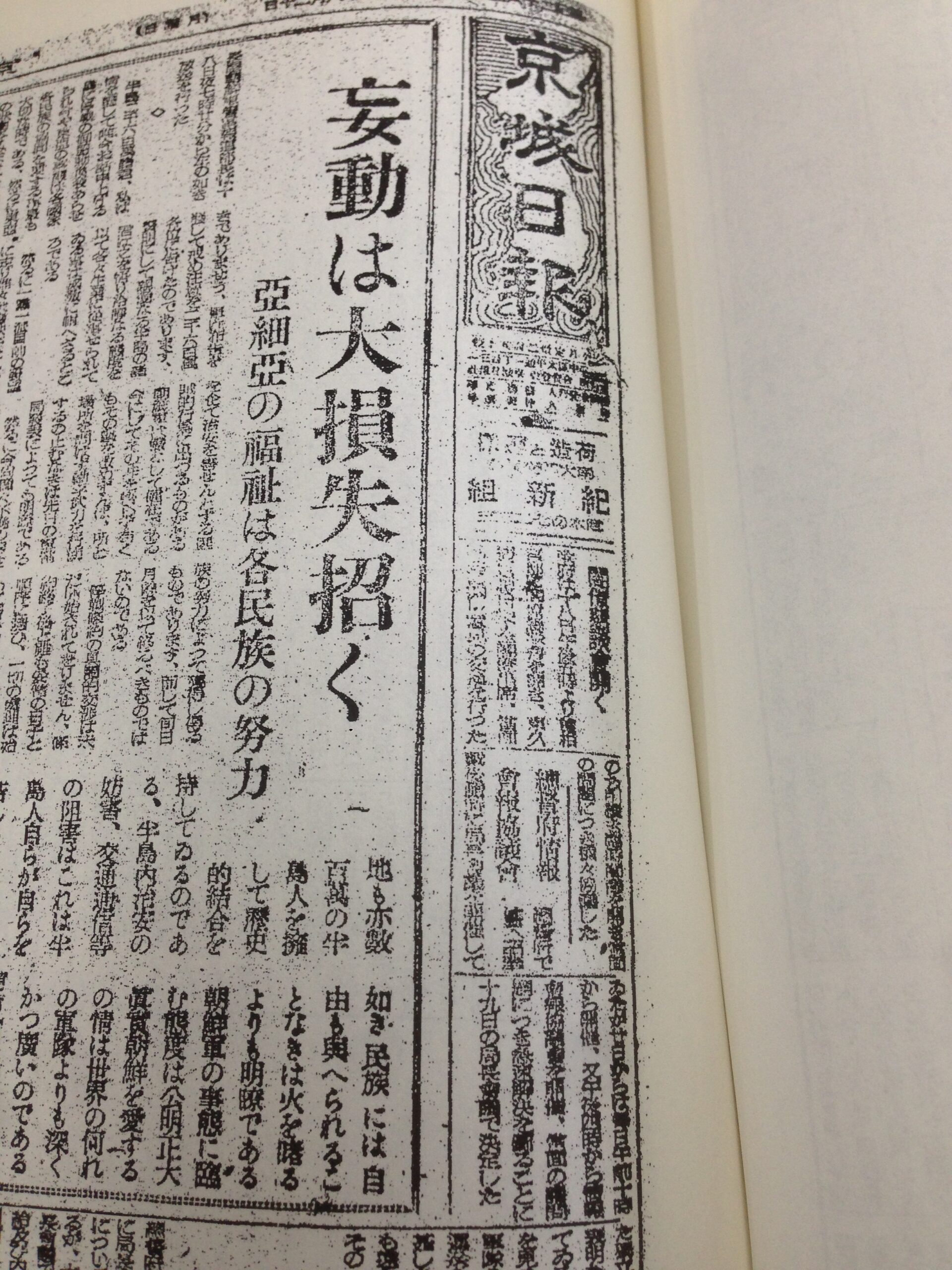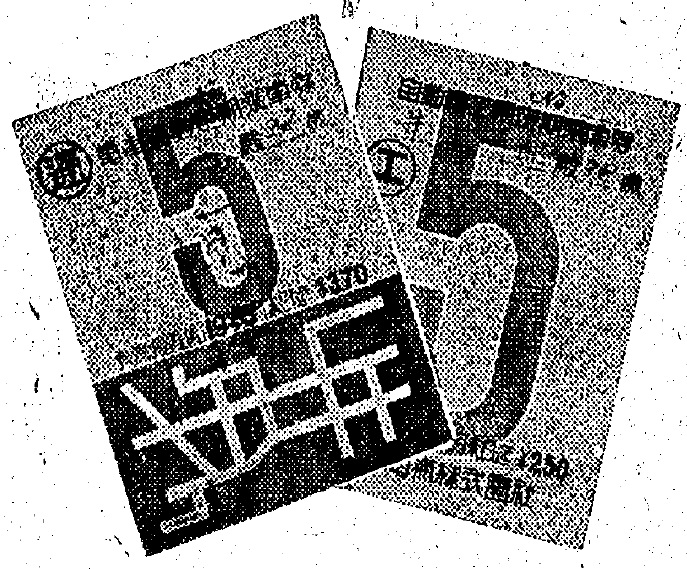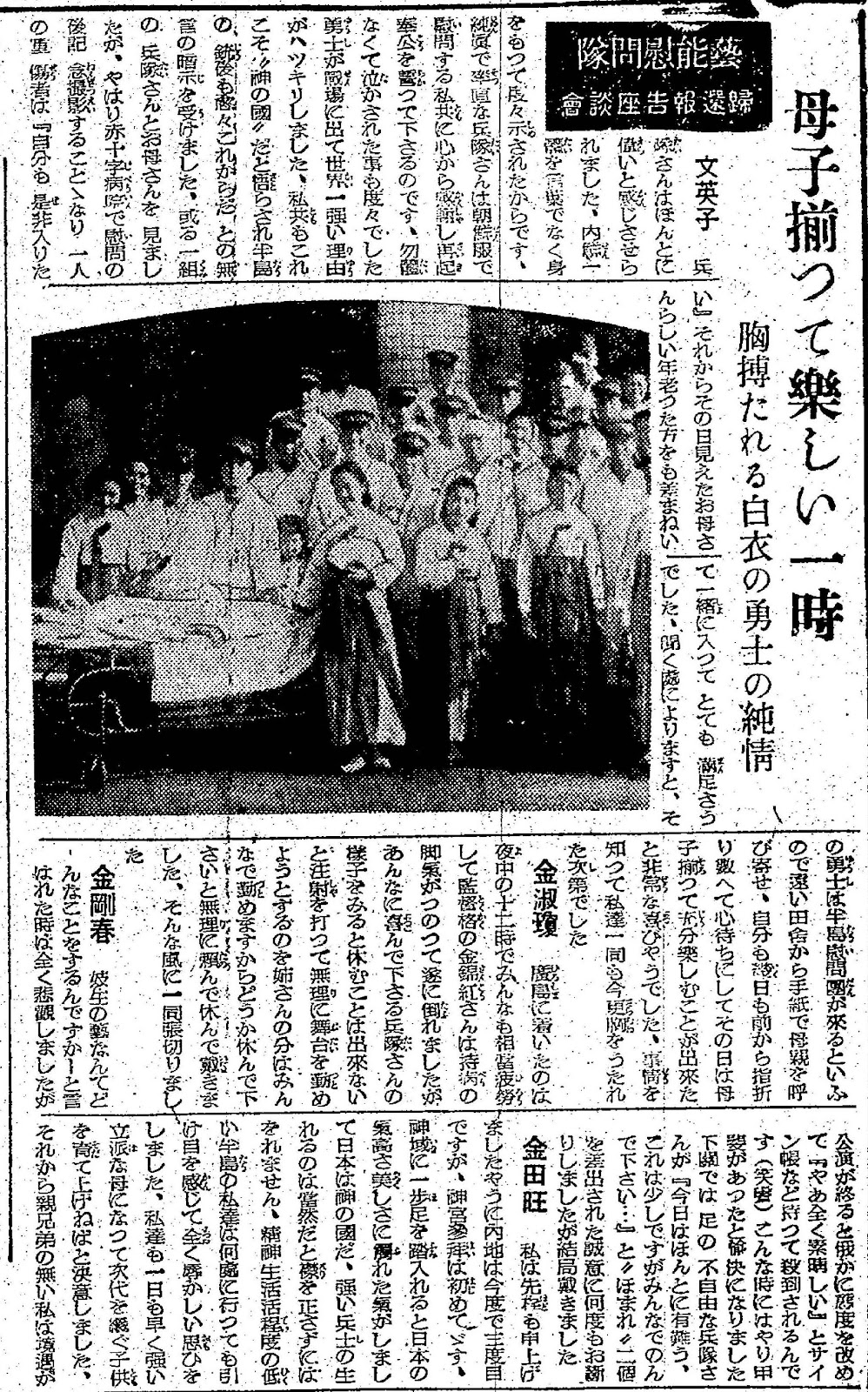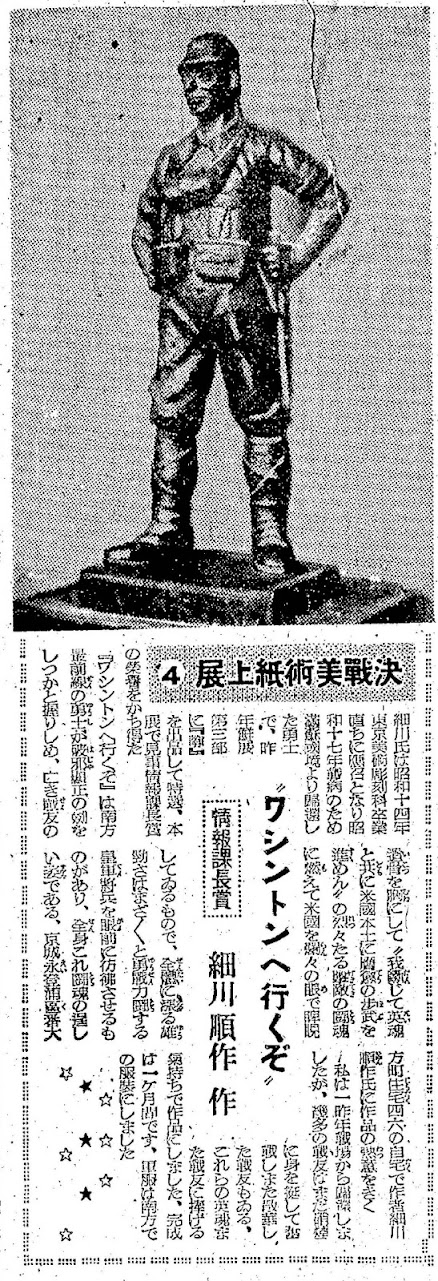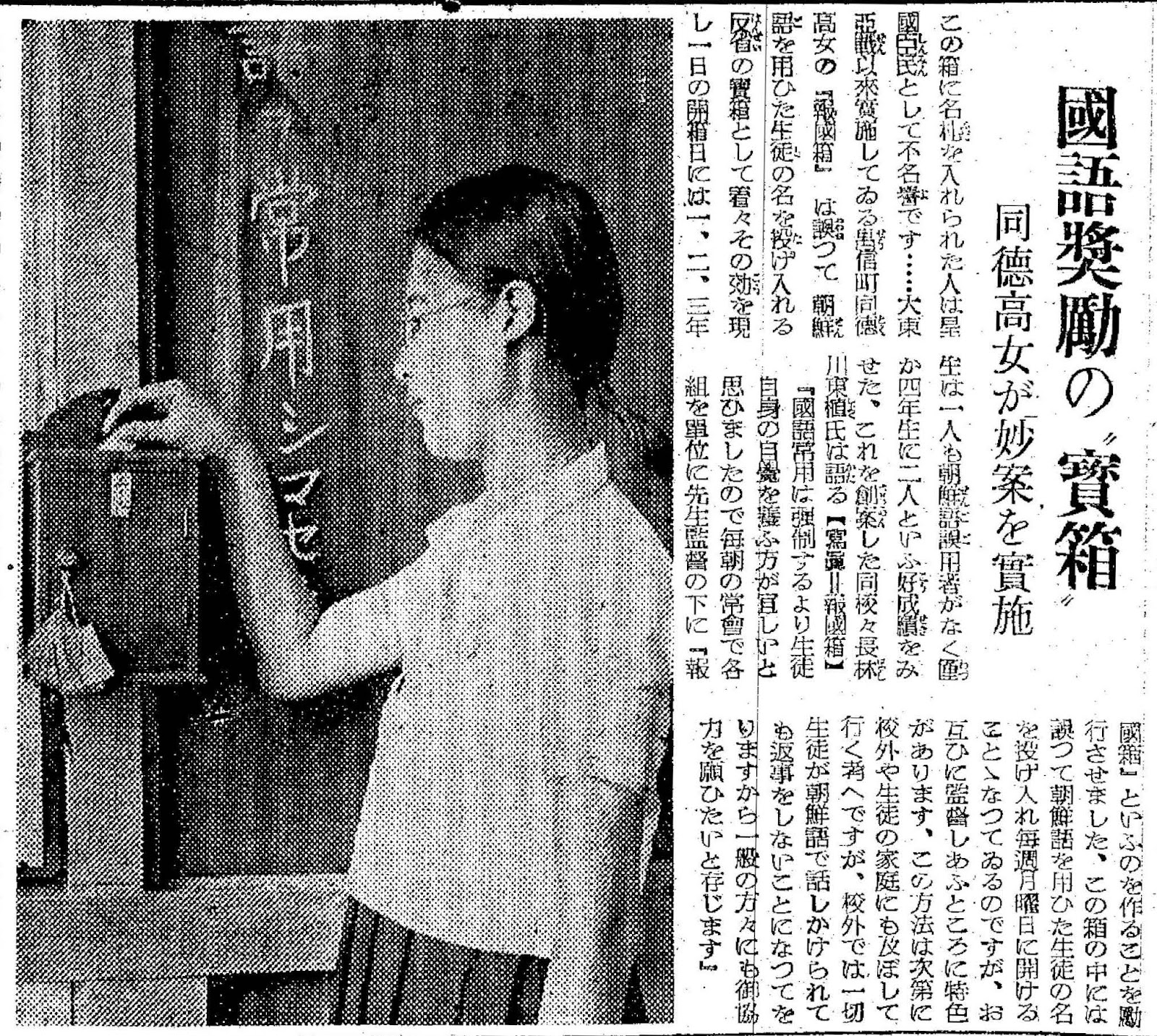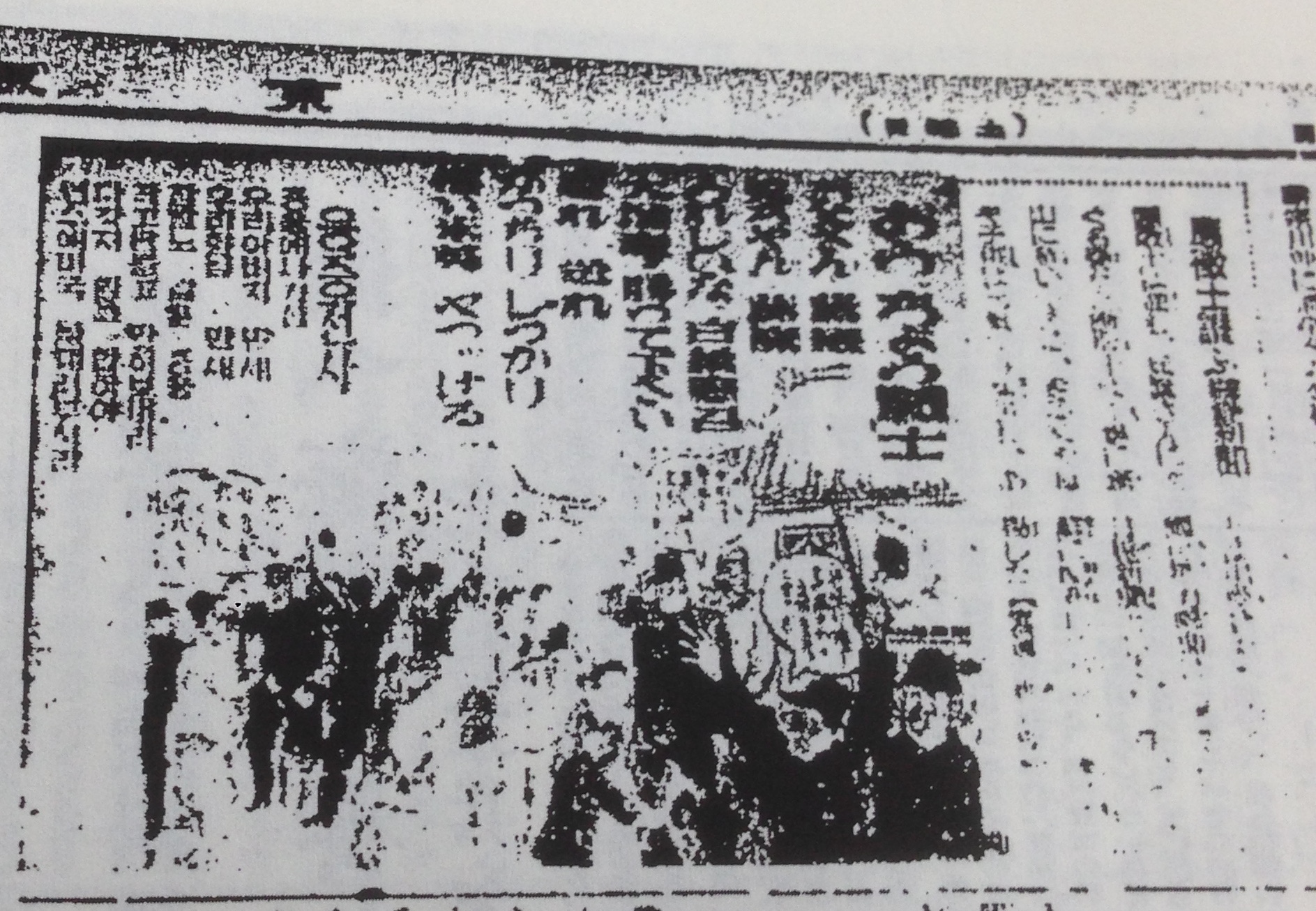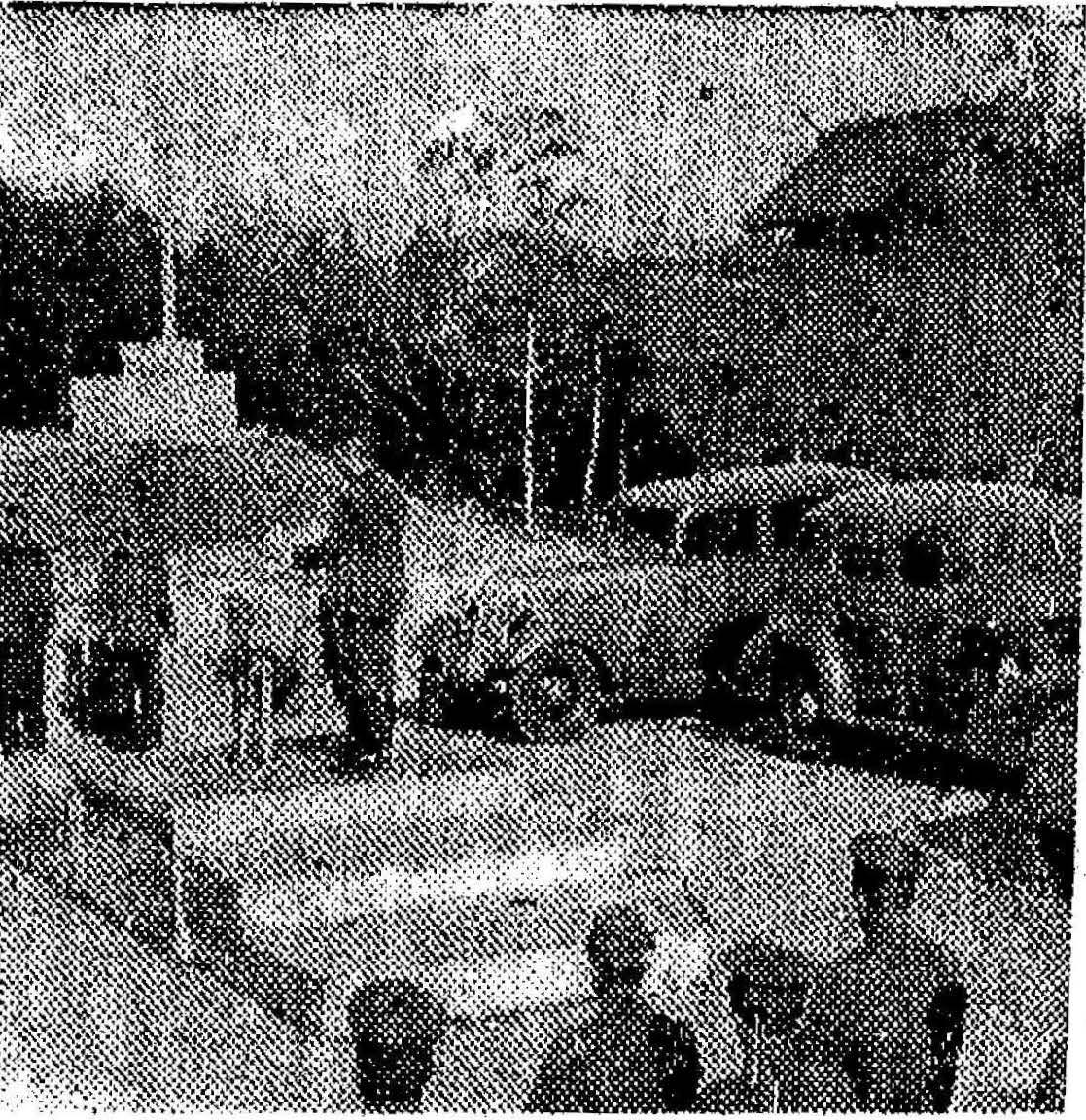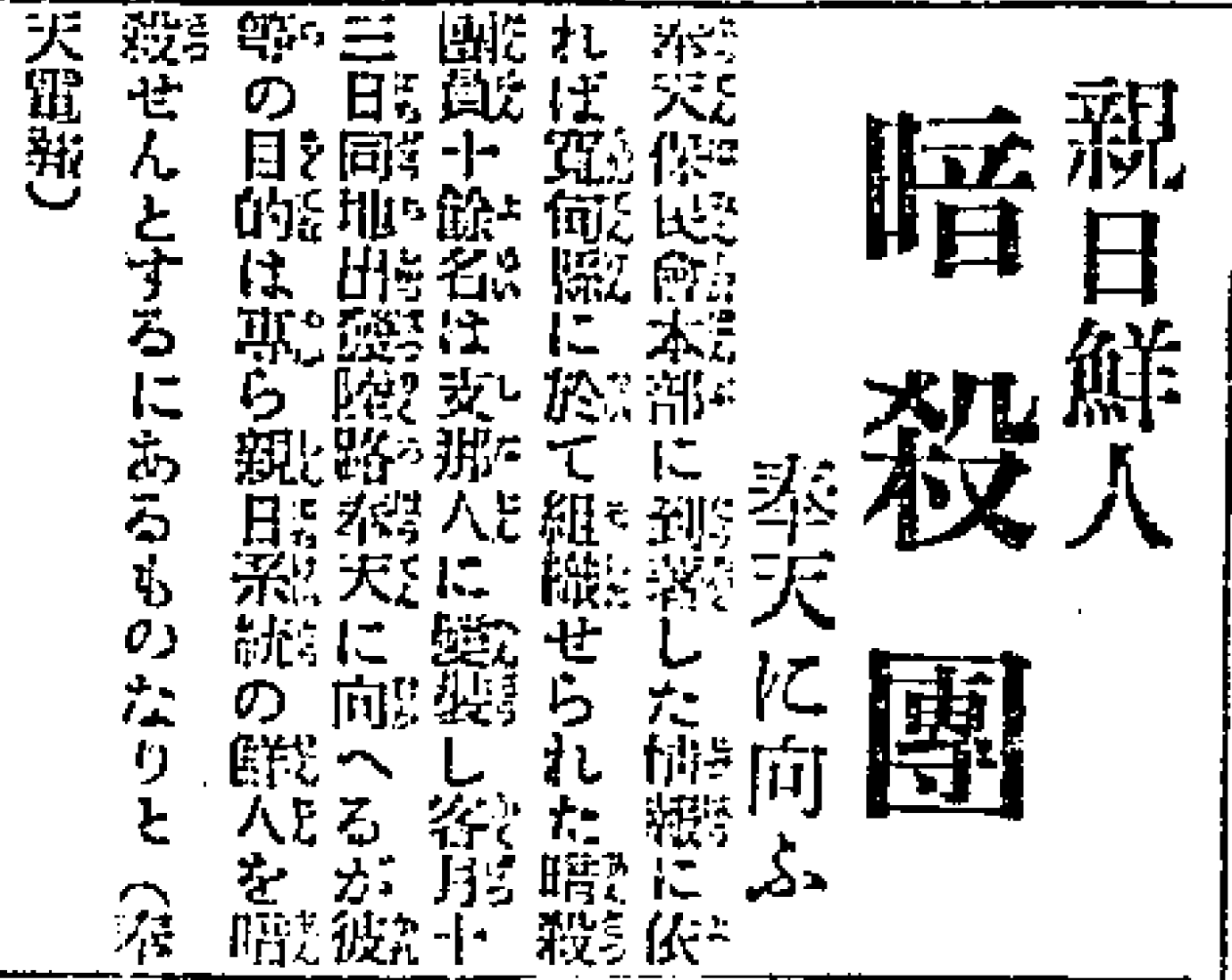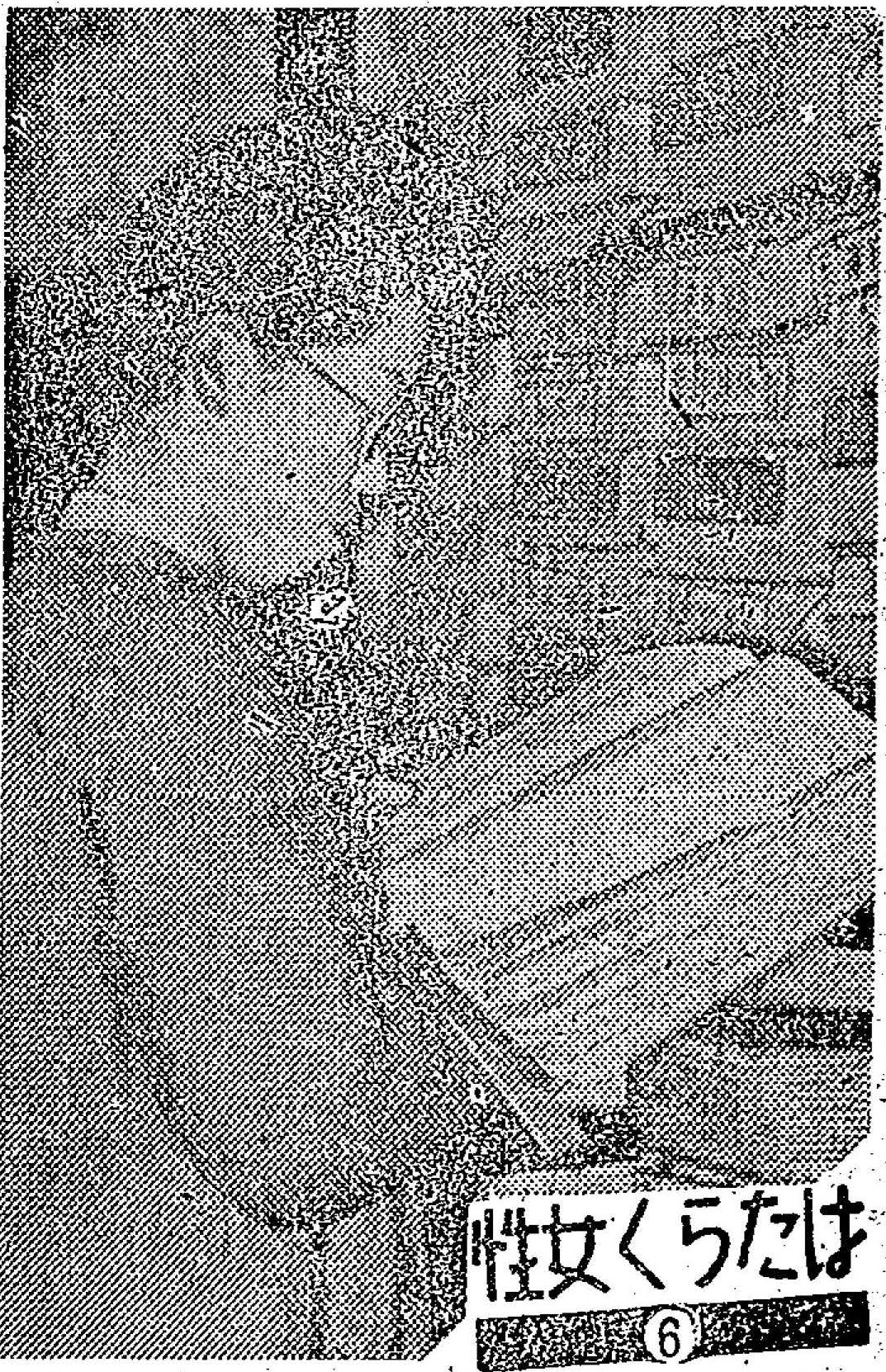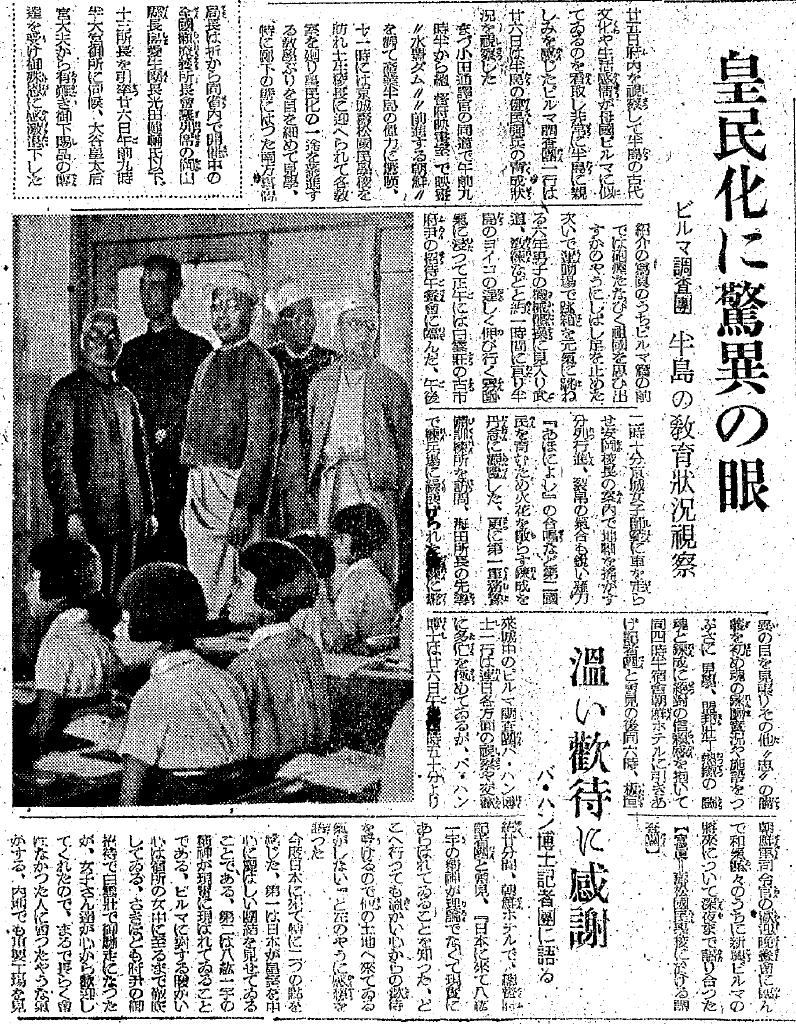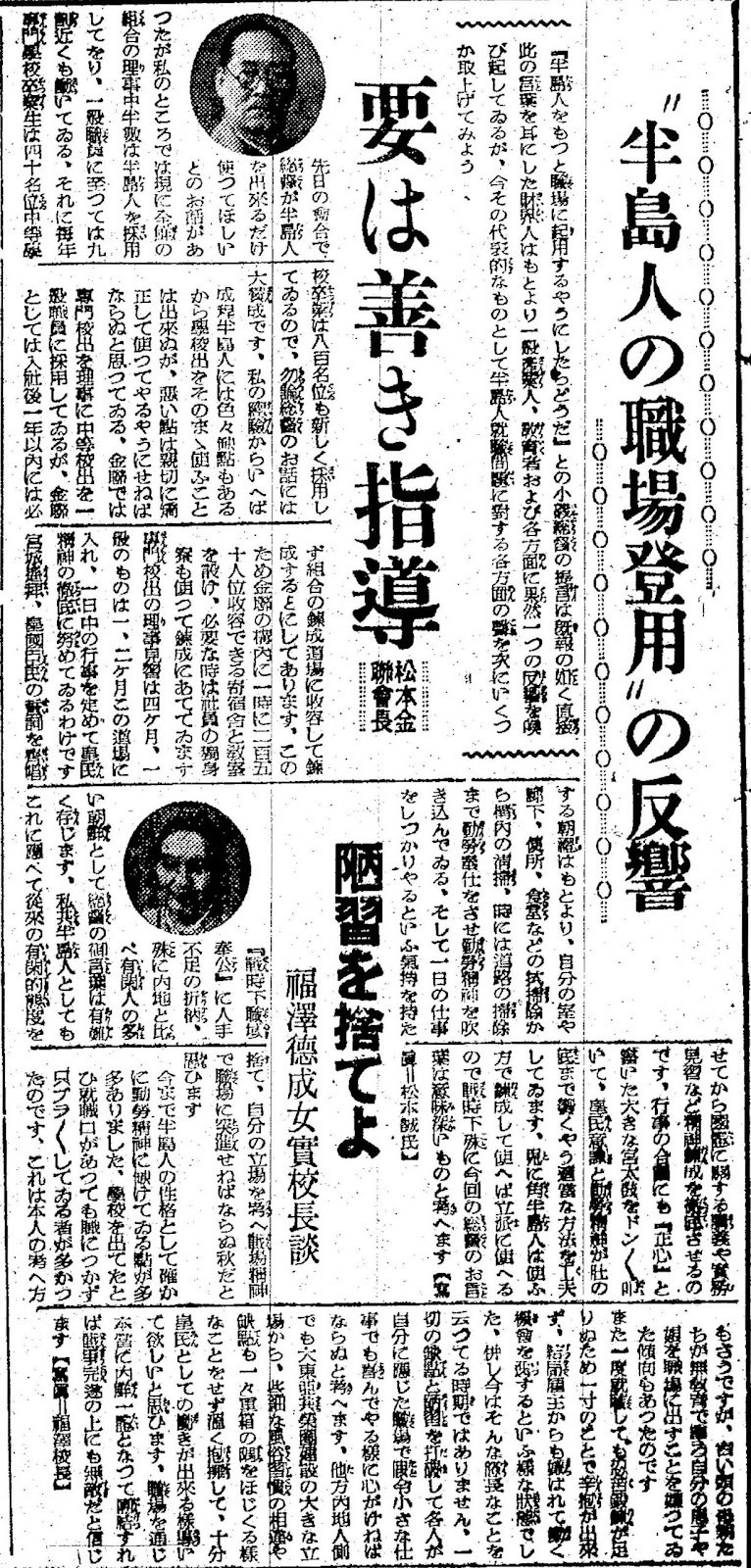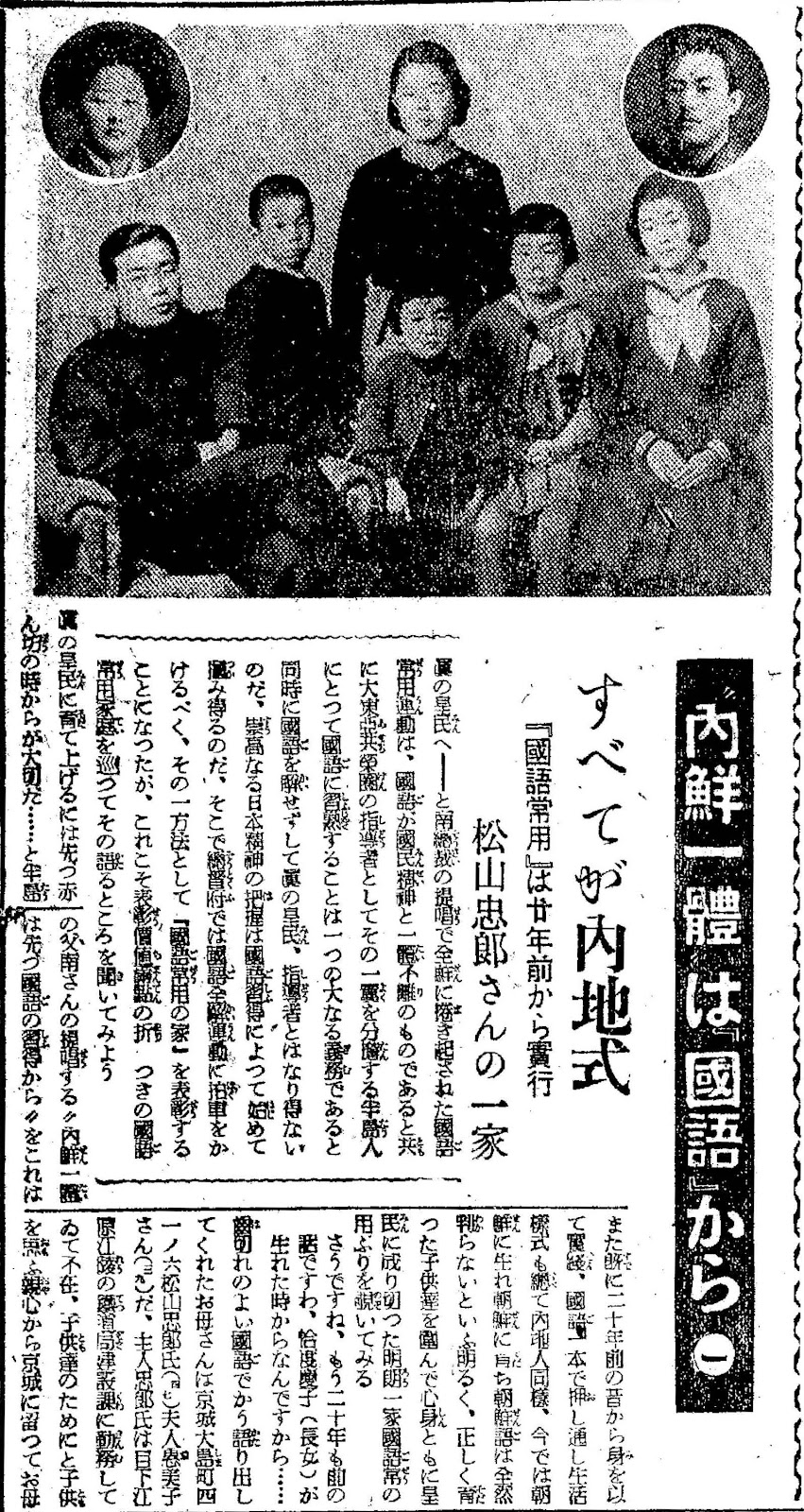
In 1942, pro-Imperial Japanese Korean parents boasted that their six children born and raised in Korea could not understand a word of Korean, because they ‘bit to death’ any Korean words which might accidentally slip out of their mouths, for which they were laughed at by other Koreans
Mr. Minami, who is mentioned in this article as the Governor and the Father of the Korean peninsula, refers to Minami Jiro (Wikipedia: https://en.wikipedia.org/wiki/Jir%C5%8D_Minami), the prime architect of Imperial Japan’s aggressive assimilation campaign to erase the Korean people’s language, culture, and identity. He ruled Japan-colonized Korea from 1936 to 1942, and he was succeeded by Governor Koiso (Wikipedia: https://en.wikipedia.org/wiki/Kuniaki_Koiso), who escalated Minami’s policies.
In the photo, the parents are in the top bubbles while the rest of the family is seated or standing. There are four daughters (ages 9, 15, 18, 22) and two sons (ages 2 and 12). I’m guessing that the youngest son is not in the photo, and the man to the left is the husband of the oldest daughter.
This article is a piece of propaganda with unbelievable statements in this article, like the children not being able to speak a word of Korean. Really? Not even ‘thank you’? Parts of their stories were probably exaggerated to please the Japanese audience.
(My Translation)
Gyeongseong Ilbo (Keijo Nippo) May 13, 1942
Unity between Japan and Korea starts with the Japanese language (1)
Everything is done Japanese-style
Family started the regular use of the Japanese language 20 years ago
The family of Mr. Tadashiro Matsuyama
The movement for the regular use of the Japanese language by true Imperial subjects, which was initiated in all of Korea by the advocacy of Governor Minami, is based on the belief that the Japanese language is inseparable from the national spirit, and that it is the great duty of the Korean people to become proficient in the Japanese language, since they are to play a part as leaders of the Greater East Asia Co-prosperity Sphere. At the same time, it is not possible to become true Imperial subjects and leaders without understanding the Japanese language. It is only by learning the Japanese language that one can grasp the noble Japanese spirit. In order to spur the movement for the complete understanding of the Japanese language, the Governor-General’s Office decided to give awards to the families who regularly use the Japanese language. Let’s visit some of these families who have been awarded full points, and hear their stories.
The Father of the Korean peninsula, Mr. Minami, advocated that the first step in raising children to become true Imperial subjects is to start teaching them the Japanese language when they are babies. One family has already been putting Mr. Minami’s words into practice for twenty years. They persist in using only the Japanese language, and their entire lifestyle is indistinguishable from the Japanese people. Nowadays, their bright, properly-raised children, born and raised in Korea, do not understand a word of Korean. We took a peek into this cheerful family which regularly uses the Japanese language as Imperial subjects in body and soul.
“That’s right. It was twenty years ago, since it’s been twenty years since our eldest daughter Keiko was born”.
The mother who spoke up in crisp Japanese was Emiko (39), who lives at 41-6, Oshima-cho, Seoul. Her husband Mr. Tadashiro Matsuyama (47) does not live there, as he is currently working at the construction division of the railroad bureau in Gangwon-do, Gangneung. For the sake of her children and out of parental love for them, the mother stayed in Seoul. She continued to talk cheerfully while holding in her lap her beloved child, who just turned two this year. It has been twenty-three years since Emiko married Tadashiro, and the year after their marriage, they had their first daughter, Keiko (22), who graduated from Seoul No. 2 Girls’ High School and currently works at the railroad bureau. Their regular use of the Japanese language as a family started when Keiko was born.
“My husband was working for the South Korean Railways at the time, and because we lived in the dormitory, most of our friends were from Japan proper, so we naturally had many opportunities to become familiar with Japanese language…”
This mother of children unable to speak Korean continued,
“When Keiko, our eldest daughter, was born, my husband said to me, ‘In order for our children to have a bright spirit and be useful as true Imperial subjects in the future, they really must know the Japanese language. No matter what other people think, we want to raise them by speaking Japanese'”.
Since then, they have been persisting for 20 years using only the Japanese language, biting to death the Korean language which might accidentally slip out of their mouths at the slightest opportunity. For this reason, they sent their children to elementary schools and girls’ schools that Japanese children attend. Their second oldest daughter Junko (18) is a fifth-year student at the Seoul No. 2 Girls’ High School, and Toyoko (15) is a second-year student at Maizuru (Muhak) Girls’ High School. By enrolling in schools that Japanese children attend, they adopted lifestyles that did not differ in any way from the Japanese children, and they were raised to become true Japanese people.
“In the beginning, we were laughed at a lot by the Koreans, but looking back now, I am really glad that we did this,” she said.
The mother closed her eyes as if she were remembering her twenty years of hardship, clearly expressing her heartfelt joy and relief. Her youngest child Hideo (2), whom she held in her lap, sometimes reached for her hair, and Emiko narrowed her eyes and nursed him saying, “Here, here is my breast”. In this family, the Korean language is not used at all. Even their clothing is mostly Japanese-style or Western-style.
This is why their children do not understand a word of Korean. After Toyoko was born, Masao (12) and Nobuko (9) were born, both of whom are currently enrolled in Motomachi Elementary School (OP note: present-day Namjeong Elementary School). On the day the military draft was announced, they had a big party all night and were very happy.
At the end of the interview, the mother looked completely satisfied with the development of her children, who had become Japanese from the bottom of their hearts.
“In recent days, I’ve been wearing Korean clothes, so my daughters often ask me to change my clothes. But if I do that, I’ll become completely indistinguishable from the Japanese people, hahaha! That’s what I think…” [Photo: Right circle is Mr. Tadashiro Matsuyama, left circle is his wife Emiko, and below is the family.]
Source: https://archive.org/details/kjnp-1942-05-13/page/n3/mode/1up
(My Transcription into modern Japanese orthography)
京城日報 1942年5月13日
”内鮮一体”は「国語」から(一)
すべてが内地式
「国語常用」は二十年前から実行
松山忠郎さんの一家
真の皇民へ―と南総裁の提唱で全鮮に捲き起こされた国語常用運動は、国語が国民精神と一体不離のものであると共に大東亜共栄圏の指導者としてその一翼を分担する半島人にとって国語に習熟することは一つの大なる義務であると同時に国語を解せずして真の皇民、指導者とはなり得ないのだ。崇高なる日本精神の把握は国語習得によって始めて掴み得るのだ。そこで総督府では国語全解運動に拍車をかけるべく、その一方法として「国語常用の家」を表彰することになったが、これこそ表彰価値満点の折つきの国語常用家庭を巡って、その語るところを聞いてみよう。
真の皇民に育て上げるには先ず赤ん坊の時からが大切だ…と半島の父南さんの提唱する”内鮮一体は先ず国語の習得から”を、これはまた既に二十年前の昔から身を以て実践、国語一本で押し通し生活様式も総て内地人同様、今では朝鮮に生れ朝鮮に育ち朝鮮語は全然判らないという明るく、正しく育った子供達を囲んで心身ともに皇民に成り切った明朗一家国語常の用ぶりを覗いてみる。
「そうですね。もう二十年も前の話ですわ。丁度慶子(長女)が生れた時からなんですから…」
歯切れのよい国語でこう語り出してくれたお母さんは京城大島町四一ノ六松山忠郎氏(四七)夫人恵美子さん(三九)だ。主人忠郎氏は目下江原江陵の鉄道局建設課に勤務していて不在。子供達のためにと子供を思う親心から京城に留まってお母さんの恵美子さんは今年二つになったばかりの愛児を膝にあやしながら朗らかに語り続ける。恵美子さんが忠朗氏に嫁いでからもう二十三年、結婚した翌年長女の慶子さん(二二)(第二高女卒、現在鉄道局勤務)を儲けたが、それからは一家挙って国語常用が始まった。
「そのころ丁度主人は南朝鮮鉄道に勤務していまして、舎宅住まいをしている関係からお交際の方達も殆ど内地人ばかりでしたものですから自然と国語に親しむ機会も多かったんですよ…」
朝鮮語の知らない子供達のお母さんは、
「長女の慶子が生れた時、主人が『子供達のため明るい精神と将来真の臣民としてお役に立つためには、どうしても国語を知らなくてはいけない、人が何といおうとも私達は国語で育てたい』と、そう私に申しましたの」
それからはちょっとした弾みにとび出す朝鮮語を危うく嚙み殺しては、国語一本で二十年の間押し通して来たものだ。学校もそのため内地人の行く小学校に上げたし、女学校もそれから次から次へと生れた次女の順子ちゃん(一八)(第二高女五年)、豊子ちゃん(一五)(舞鶴高女二年)も同じく内地人の学校に入学させ、内地人と一つも変わらぬ生活儀式を取り、真からの日本人として育てて来た。
「初めのうちは随分半島人に笑われもしました。でも今になってみると本当によかったと思います」
お母さんは心からの喜びと安堵の色をはっきり面に現しながら二十年の苦労を偲ぶように眼を閉じた。無心に膝に抱かれている末子の英雄ちゃん(二つ)が時々お母さんの髪に手を伸ばさんとすると恵美子さんは”ほら、ほら、おっぱい”と眼を細くしてあやしている。家庭においても一切朝鮮語は用いない。着物も和服と洋服ばかりだ。
だから子供達は、ちっとも朝鮮語は判らない。豊子さんのあとに正雄君(一二)と信子ちゃん(九つ)が出来たが、これも現在二人とも元町国民学校に在学中だ。徴兵制実施の発表された日には一晩中大騒ぎをして喜んだということだ。
最後にお母さんは心から日本人に成り切った子供の成長にすっかり満足そうに顔一面を綻ばせて語った。
「私がこのごろ鮮服を着ているので娘達が頻に『服装を変えてくれ』と申しますの。『そしたらすっかり内地人と変わらないようになりますのに…』ってホ、ホ、ホ…それは私もそう思うんですけど…【写真=円内右が松山忠郎氏、左が恵美子夫人、下はその家族】
